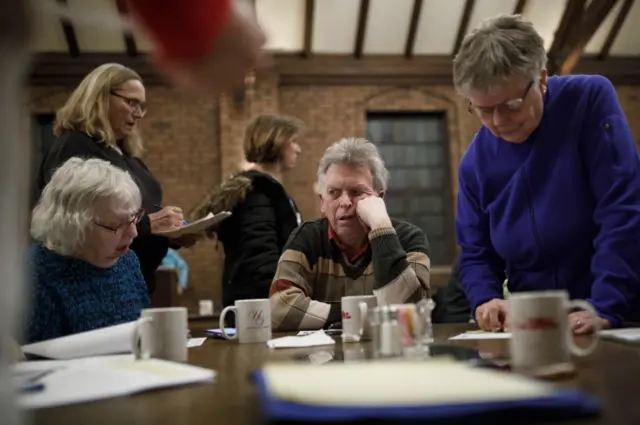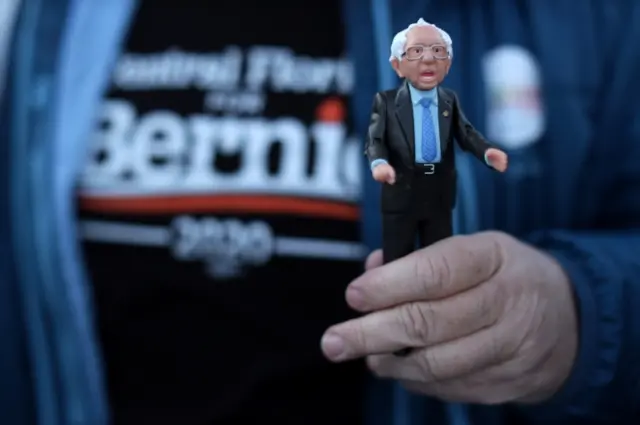'The overwhelming sense is nervousness'published at 22:50 GMT 3 February 2020
Katty Kay
Des Moines
This is my fifth Iowa caucus and the overwhelming sense I get this year is nervousness.
Sometimes you get excitement - 2008 - sometimes there’s anger - 2004 - but this time there’s just anxiety.
In the two days I’ve been here I’ve spoken to three candidates, and been to two rallies. Everyone I spoke to knows it won’t be easy unseating Mr Trump. They hope these caucuses will give clarity and unity to a divided field.


